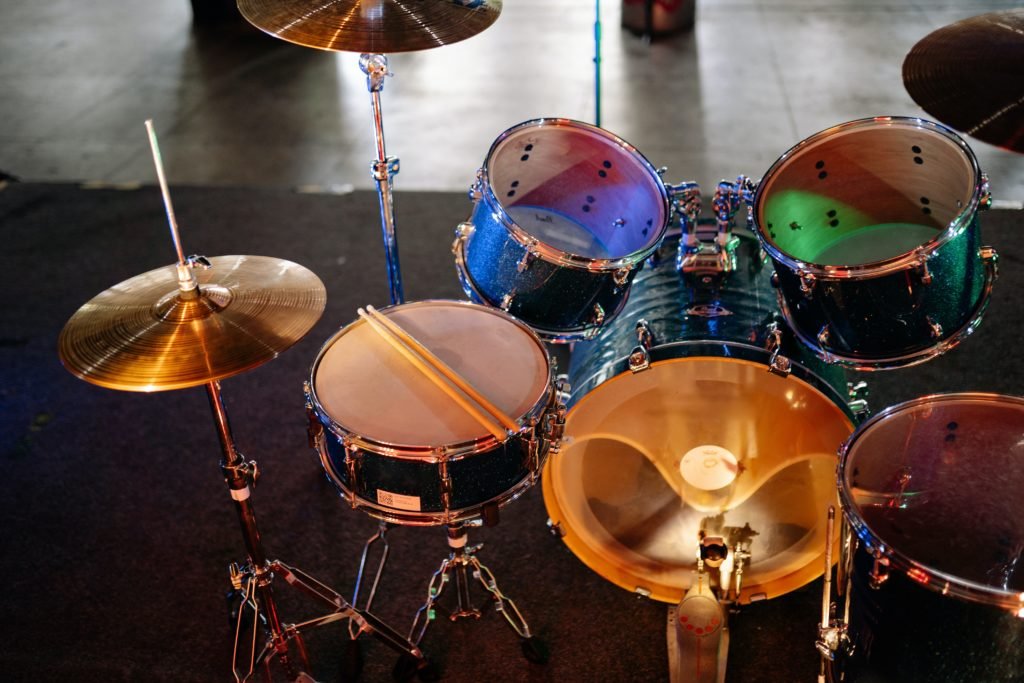Musical instruments are expensive and can last a lifetime (or more) if properly cared for, including stored properly. What happens when your love for your craft begins to outgrow your home or studio? Self storage is a great option for musicians who find themselves with more gear than they have room for. Whether it’s a few extra guitars or a full drum kit, there’s a storage unit that’s right for you.
Before you pack up your gear and bring it to one of our locations, however, take a few steps to ensure your instruments stay in top condition. Properly preparing your musical instruments for storage can mean the difference between keeping things tidy and thousands of dollars in expensive repairs.
Rent an air-conditioned unit
The only acceptable option for putting your musical instruments in self-storage is an air-conditioned unit. Musical instruments are sensitive to drastic temperature changes, high humidity, and prolonged exposure to heat and cold. These conditions can have drastic effects on your musical instruments, such as out of tune, mold or mildew, or even serious structural issues like warping or cracking.
A self-storage unit will help you keep your musical instruments at room temperature and reduce their exposure to humidity. This isn’t just important for instruments either; If you own other equipment, such as amplifiers and other electronic components, air conditioning can also help you keep their delicate, moisture- and temperature-sensitive components in pristine condition. For best results, always look for a facility that offers indoor units with heating and cooling.
Use the right type of enclosure
You wouldn’t leave your guitar on the floor for anyone to trip over (we hope, anyway). Depending on how long you plan to store your instrument, it’s a good idea to purchase a hard case. If you plan to take it out regularly, a soft case may suffice, but if you carry instruments around in your vehicle on a daily basis, a hard case may provide additional protection. Hard cases don’t just help prevent physical damage. They can protect your instrument from harmful UV rays and keep insects out, provided they are properly attached.
Note that while most hard cases include some sort of padding inside, it may be a good idea to layer acid-free paper between the instrument and the case, just in case dust or dirt gets in. would be deposited inside the case. This will help preserve your instrument and keep it free of scratches or case residue.
Prepare your instrument for storage
Of course, just having the right case and a good air-conditioned unit is not enough, as you will need to prepare your instrument for storage. Depending on the type of instrument(s) you plan to store, this also involves many steps. Before storing any type of instrument for any length of time, be sure to thoroughly clean it with a recommended cleaner. If polishing is needed, do that too. Never use household cleaners, as they may damage the instrument.
Wood storage
For woodwinds like saxophones, flutes, or clarinets, be sure to place tissue paper between the pads of the instruments. This prevents the pads from sticking. Dismantle the reeds or mouthpieces and do not leave straps on the instruments.
Storage of stringed instruments
Loosen bow strings and hair to keep them from expanding and contracting during storage. Even though they may be in an air-conditioned unit, it is much easier to increase the tension on loose strings than to deal with an instrument that has a warped neck.
Storage of Drums and Pianos
If you plan to store your battery (or even a single battery), consider loosening the skins. This will help keep them from stretching and may delay the need for replacement. Pianos, unlike other stringed instruments, do not require the strings to be released, but you want to wrap the legs, pedals, and bench in padding to protect them. Covering pianos and drums with a tarp or sheet can keep them from getting too dusty.
Place your instruments in storage
Once you’ve prepared all of your instruments for storage, it’s time to move them into your unit. Consider renting shelves for your storage unit (or buying your own if you plan to store them for a long time). The main reason for this is to avoid placing your instruments on the floor, especially if they are particularly sensitive to temperature changes. Instead of leaning them against a wall, place your larger instruments, such as guitars or cellos, on shelves to prevent them from falling.
Never stack anything heavy on top of your musical instruments, even if they are in a hard case. Likewise, never stack heavy musical instruments on top of other items you may have in stock; the risk of them toppling over or being damaged is simply not worth it.
Maintenance of stored instruments
Even if you plan to leave your instruments in storage and unused for a while, check on them from time to time. If you’ve done your due diligence and prepared them for storage, you shouldn’t have much to worry about, but it’s still a good idea to pay them an occasional visit.
Wooden instruments, even in hard cases, should be checked for insect damage. It usually looks like wormholes. Additionally, carefully examine your instruments for the following issues, especially if they have been in storage for a long time:
- Discoloration
- Warping
- Mold
- Corrosion
- cracking of seals or other surfaces
If you see any signs of the above damage, take your instrument to a professional repair shop immediately. Leaving them in storage could make the problem worse and end up costing you even more money to fix.
If your instrument is particularly valuable, consider insurance. Even if you’ve packed it properly, stored it in an air-conditioned unit, and checked it regularly, unforeseen damage (like tornadoes or floods) could ruin it.





